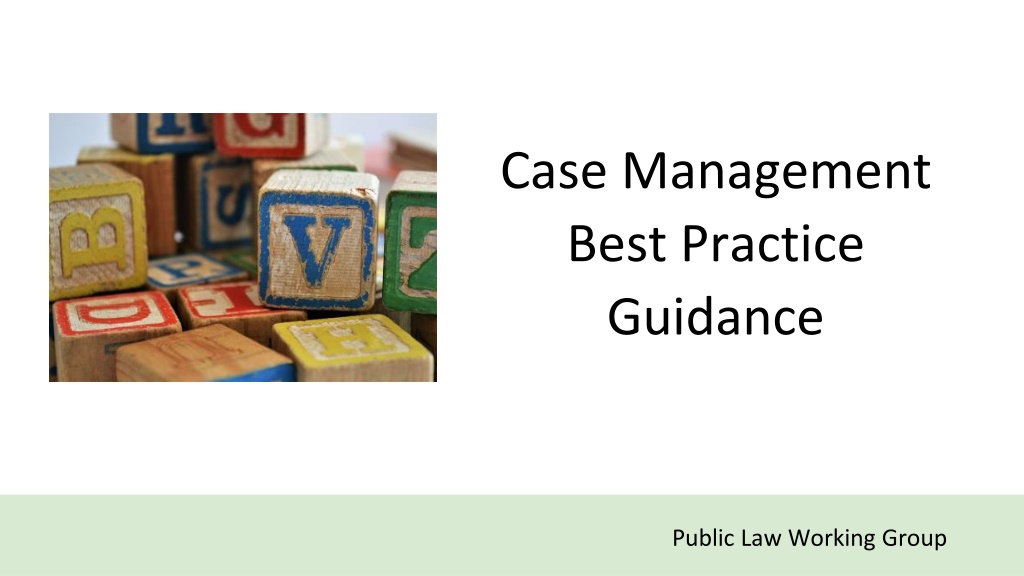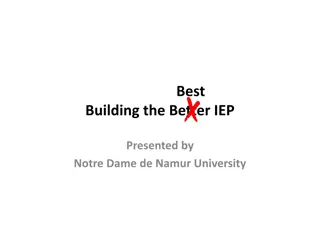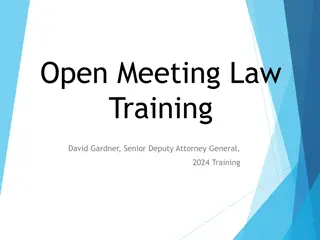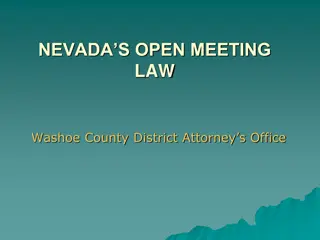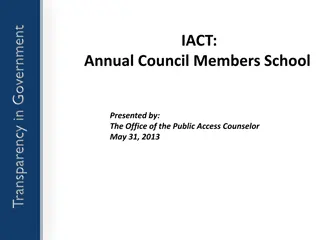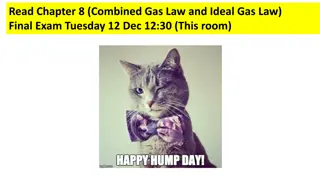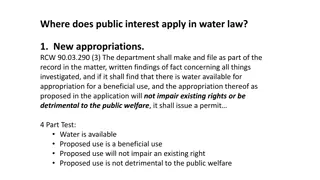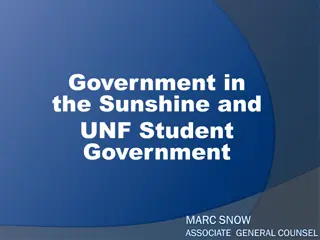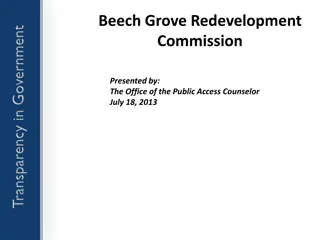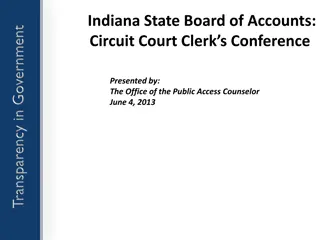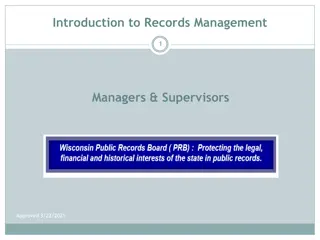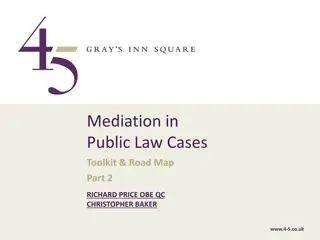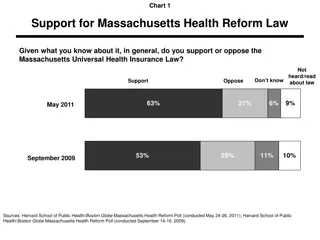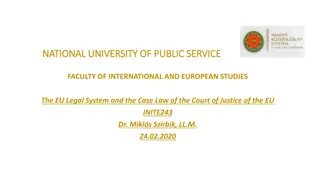Best Practices in Public Law Case Management
Offering guidance on efficient case management in public law proceedings, emphasizing the importance of early preparation and streamlined processes. Focus on short form orders, case summaries, position statements, and management of newborn baby cases.
Download Presentation

Please find below an Image/Link to download the presentation.
The content on the website is provided AS IS for your information and personal use only. It may not be sold, licensed, or shared on other websites without obtaining consent from the author. Download presentation by click this link. If you encounter any issues during the download, it is possible that the publisher has removed the file from their server.
E N D
Presentation Transcript
Case Management Best Practice Guidance Public Law Working Group
Whats new? Short form orders after completion of full CMO at first hearing Case summaries & position statements to be filed and served 4pm the day before the hearing Focus on navigating judge/justices through the bundle and provide a short reading list set out in CS or PS, rather than editing/filleting the bundle New born babies strict case management and time limits Public Law Working Group
Whats new? cont. Greater use of extensions to the 26 week time limit in appropriate cases More intense focus on (a) whether expert NECESSARY and (b) whether another FCMH or directions hearing is NECESSARY For CMH or FCMH PS on behalf of CG is sufficient rather than a detailed case analysis Limit the number of issues (ie no more than 6) to be determined at a FFH Public Law Working Group
Whats new? cont. Routinely release CGs from attending the whole of a FFH Do NOT list a FH before an effective IRH More intense focus on IRHs being effective to conclude the proceedings or limit the issues in dispute No COs with children remaining at or returning home, unless exceptional reasons for making a CO Public Law Working Group
1. Short form orders (paras 11-15) CMO completed ONLY for first CMH Thereafter short form order containing only the information, recitals and orders relevant to or made at this hearing To be submitted to court within 24 hours of the hearing unless the judge directs otherwise Public Law Working Group
2. Case Summary, Position Statements and CG s Position Statement to be in template format (Appendix H1-H3) (paras 16-17) To be filed and served on or before 4pm the day before the hearing After the first CMH, Case Summaries should not repeat the whole of the background information Public Law Working Group
3. Newborn babies (paras 18-20) Prepare application and supporting documents in advance of birth where application intended to be made for removal of baby into care Strict case management directions and time limits Public Law Working Group
4. 26-week limit (para 21) Where way forward is clear (eg child not to return to parent(s)) but further time is required to determine plan or placement which in best interests of child, consider extending the 26 week limit Public Law Working Group
5. Experts (paras 22-24) ONLY where NECESSARY for just and fair determination of the proceedings Judges MUST scrutinise all applications for experts with rigour Public Law Working Group
6. Hearings & FFHs (25-29) Is a further hearing in the case really NECESSARY? If so, why and for what purpose? For purposes of stand CMHs or FCMHs, position statement from CG will suffice rather than detailed case analysis Limit the issues to be determined at FFH no more than 6 Focus on identifying the father, DNA testing (if necessary), DBS checks, disclosure of documents to those subject of viability assessments & early identification of realistic kinship carers Importance of judicial continuity Public Law Working Group
7. Do NOT list FH before effective IRH (paras 30-33) List IRH for realistic period of time Advocates meeting at least 2 days before IRH Steps & information required for an effective IRH Public Law Working Group
8. Care Orders at home (33-37) Requires exceptional reasons to make a final CO with child/children remaining/living at home Must NOT be used as a vehicle for provision of support & services Rare in extreme that risks merit a CO but risks can be managed with child/children living at home CO represents a serious intrusion by the state into family life Public Law Working Group
